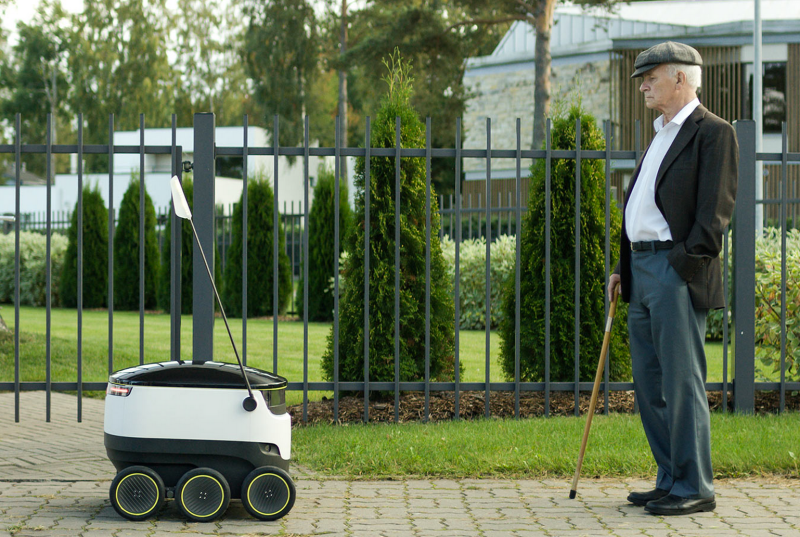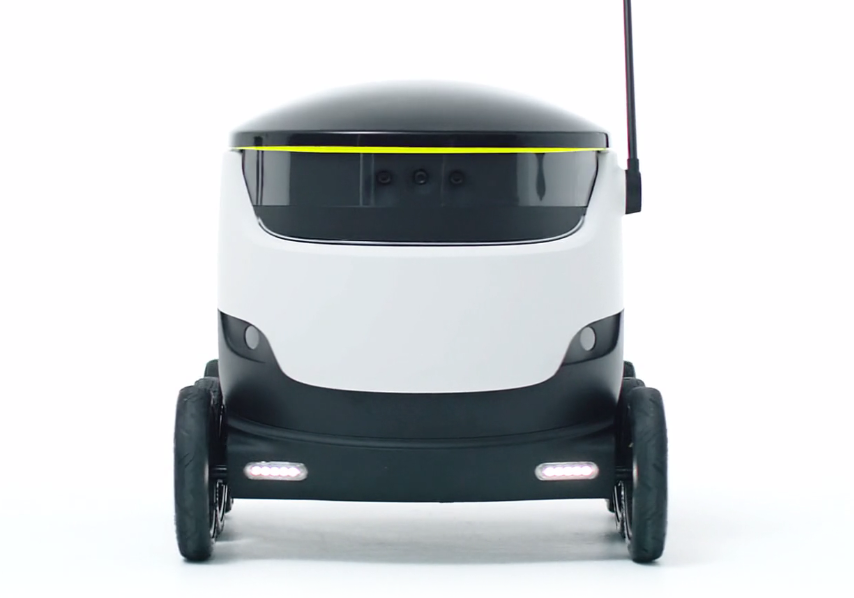
Tired of paying unreliable humans to deliver your groceries? Tired of driving, or worse, walking to the supermarket? The answer may be yes depending on whether you’re handicapped, lazy, or want to save time. At least, that’s what Starship Technologies, the new company founded by Skype co-founders Ahti Heinla and Janus Friis, hopes with its new grocery-delivery robot, a self-driving, IoT-connected, six-wheeled robot capable of hauling 40lbs worth of groceries to your doorstep.
The idea is that customers use a mobile app to select their groceries from nearby shops before establishing a designated time slot for the delivery to commence. The robot then travels at four miles an hour, navigating pedestrian sidewalks with the help of its nine cameras, to deliver the goods within 5 to 30 minutes. Once it rendezvous with the customer, he/she proceeds to unlock the cargo space to remove the goods. And of course, progress may be tracked in real-time in case something goes awry.
It's a fresh departure from the delivery drone machinations pursued by everyone from Amazon and Google to Walmart. As a terrestrial solution, the delivery cost is projected to be extremely low compared to that of aerial drones, and not to mention, aerial drones cannot carry 40 lbs of cargo.

Moreover, all the legal ramifications and safety concerns surrounding delivery drones will take another couple years to work out, whereas Starship’s robot primary concerns are not legal, but whether or not it can be safety integrated on pedestrian sidewalks.
Recall that the last time an unsupervised hitchhiking robot was deployed in the United States, it was destroyed within 2 weeks, whereas in Europe, it survived an entire multiple national trip. The BBC reports that the IoT robot is to be equipped with speakers in addition to cameras, and that human supervisors at the headquarters will be able contact the local authorities if the robot is vandalized.
It’s not unrealistic to hope that delivery robots could someday become ubiquitous technology, assuming the benefits they provide prove accessible to the wider populace. In that way, we may adopt an attitude of mutual respect similar to the one we hold toward other people’s publically parked vehicles; it’s all a matter of adopting the same marketing tactics.
Starship Technologies plans to launch a pilot program in the US, UK, and a handful of other countries in 2016. The robots are currently undergoing prototype testing. In the meantime, check out the snazzy teaser the company put out.
Do you think the technology has a shot, or is it ahead of its time?
Source: Gizmodo, Starship Technologies, and BBC
Advertisement
Learn more about Electronic Products Magazine





